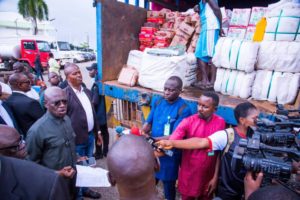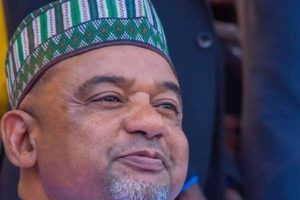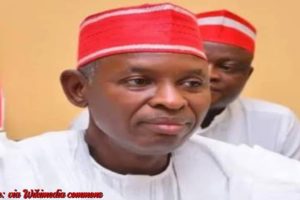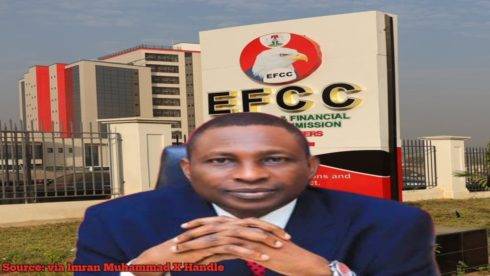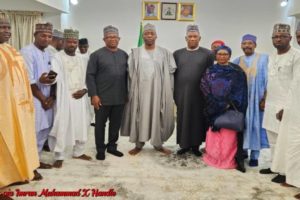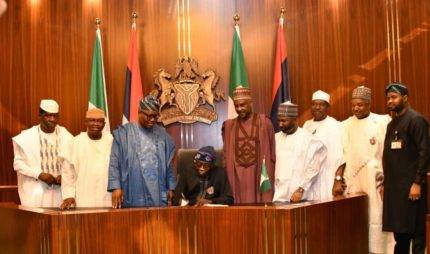Insecurity is a pressing issue in Nigeria, with the political class being a major contributor to the problem. The Oxford Advance Learner dictionary defines insecurity as the state of being subject to danger, injury, or the anxiety experienced when feeling vulnerable and insecure. National insecurity, on the other hand, pertains to a nation inadequately defended against danger or aggression, whether from external or internal threats.
Insecurity in Nigeria: The Unfortunate Role of the Political Class
In Nigeria, the nature of insecurity has regionalized, with militia groups in the South, insurgency in the North, kidnapping in the East and South, ritual killings in the East and West, and both political and non-political assassinations across the nation. Various forms of insecurity include bodily, emotional, food, economic, political, and environmental insecurity, but this article focuses on political insecurity caused by the political class.
Former Chief of Army Staff, Major General Tukur Buratai, asserts that “insecurity is a creation of the political class.” He emphasizes that the political class bears responsibility for the insecurity crisis in the country since 2009. Buratai calls for a strong political will to surmount this problem and advises politicians, public servants, and civil servants to combat corruption that has eroded public trust and hindered development.
Misappropriation of public funds, bribery, and embezzlement have become commonplace, diverting resources away from essential services and leaving citizens disillusioned. Buratai also stresses the importance of politicians being accountable and transparent.

Sugar-Coated Campaign of Empty Promises
Politicians often make grand promises during election campaigns but fail to deliver once in power, eroding public confidence. In Nigeria, it is evident that the political class orchestrates various forms of insecurities, from campaign-level thuggery to the use of sophisticated weapons to manipulate elections and assassinate opponents.
This behavior has created a dangerous lifestyle that poses a national threat and perpetuates insecurity in the country. The question arises: Why fight what you’ve created? Politicians involved in the creation of national insecurity should do the needful and desist from these harmful activities.
The Toll on Nigeria’s Foundations: Counting the Cost
As of June 2023, the Displacement Tracking Matrix (DTM) identified 2,295,534 internally displaced persons (IDPs) in 471,346 households and 2,075,257 returnees in 341,895 households. Insecurity has not only affected lives but also economic growth by discouraging investments, increasing unemployment, and reducing government revenue.
According to reports from the World Bank and the Nigeria National Bureau of Statistics in 2020, well before the onset of the COVID-19 pandemic, the poverty rate in Nigeria was estimated to be over 40%, with a significant portion of the population living below the national poverty line. It’s important to note that even those above this poverty threshold did not necessarily enjoy a high standard of living. Economic challenges compounded by ineffective political leadership meant that only a small percentage, ranging from 1% to 5% of Nigeria’s population, could truly claim a comfortable standard of living.

Regarding unemployment, Nigeria was grappling with a high unemployment rate prior to 2020. In the second quarter of that year, the National Bureau of Statistics reported an unemployment rate of approximately 27%, though it’s crucial to recognize that these figures are subject to fluctuations.
In terms of food security, Nigeria faced ongoing concerns due to a range of factors, including conflicts, climate change, and economic challenges. In 2020, certain regions of the country experienced food shortages, which were exacerbated by the impact of the corrupt practices.
The Political Class: Ability to Fix But Lack of Will
The political class possesses the knowledge and expertise required to address the security challenges in Nigeria; however, what seems to be lacking is the necessary will and determination to take effective action. To address insecurity, several solutions should be implemented:
- Tackle the root cause: Political class aggrandizement and heartlessness must be severely dealt with, potentially reducing insecurity by more than 50%.
- Enhance security intelligence and security infrastructure to enable the armed forces to tackle insecurity effectively.
- Involve the citizenry in the fight against insecurity by investing in community initiatives.
- Strengthen the role of the police and security forces by reviewing their remuneration, conditions of service, and providing sophisticated ammunition.
- Improve education and job opportunities for a more tranquil and prosperous nation.
Additionally, the Nigerian government should prioritize justice and impartiality at all levels and embrace justice and egalitarianism.
Once again, Nigerians are closely monitoring the ongoing pledges of the current political class, as they claim to offer a departure from the familiar landscape of the nation. The influence of the political elite in Nigeria‘s prevailing insecurity situation cannot be underestimated. This pervasive issue is regressing the nation, pushing it further into underdeveloped conditions, and obstructing any substantial progress. Recognizing their role in both the genesis and perpetuation of insecurity is the initial stride toward identifying a remedy and ensuring a brighter future for the country.
Table of Contents
Discover more from OGM News NG
Subscribe to get the latest posts sent to your email.

